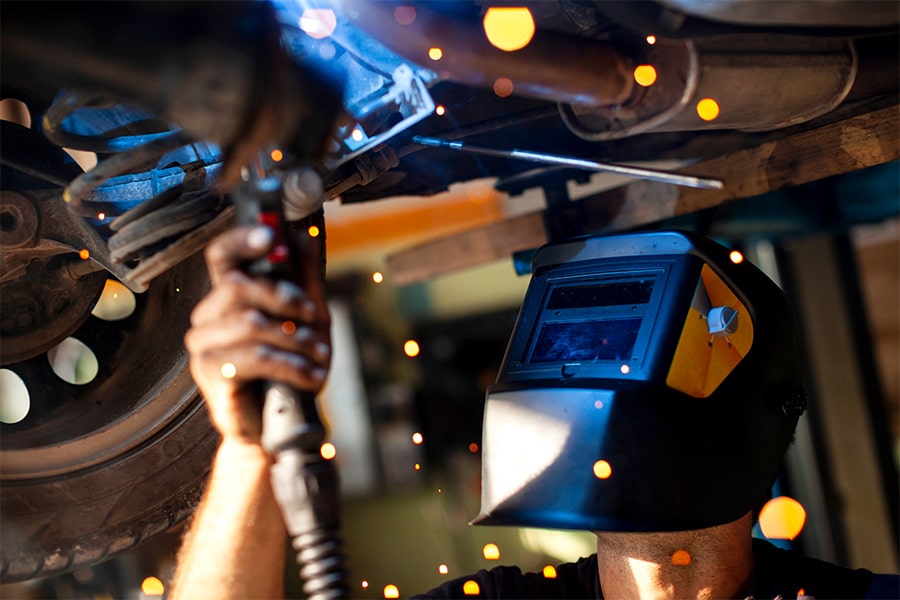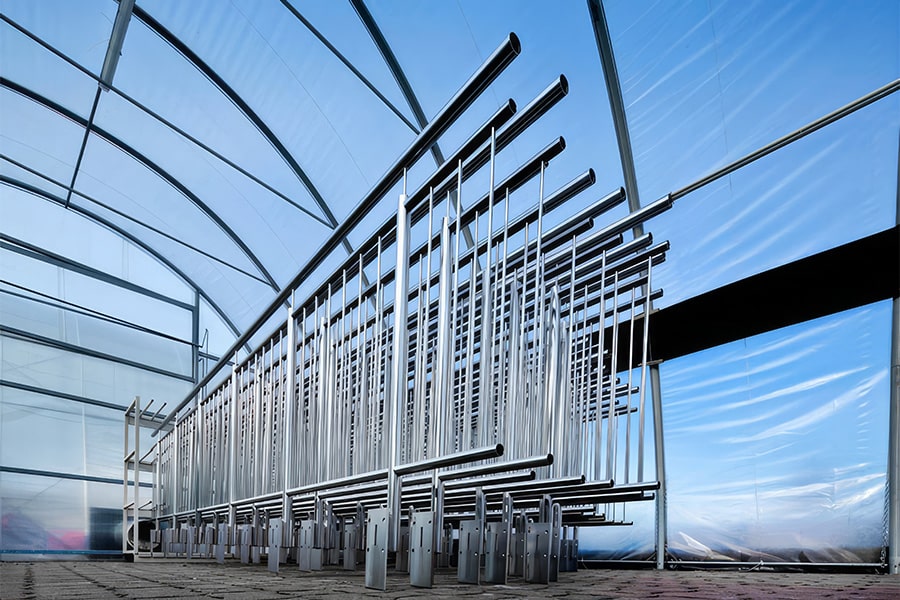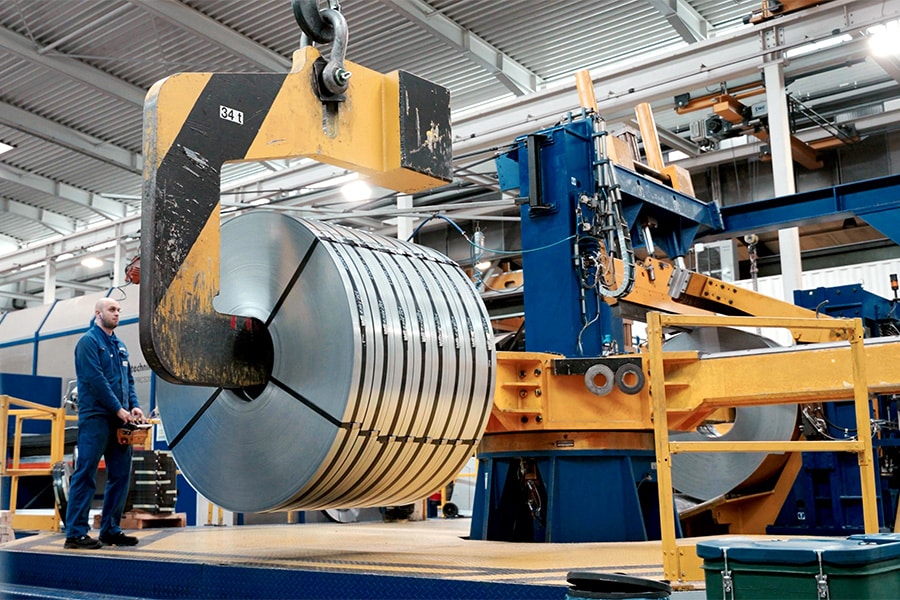
Pickling with maximum safety and minimum impact
To turn a metal into a finished product that is a real eye-catcher, the surface must be treated properly. Therefore, pickling is applied in addition to grinding, brushing or blasting. There are several ways to do this, depending on the requirements in the production process. But no matter how highly diluted a pickling solution is, it remains harmful to people and the environment. In contrast, Abicor Binzel's ABICLEANER electrolyte solution casts itself as an environmentally conscious alternative.
In pickling, corrosion layers or top layers from previous operations - typical contaminants are polishing residues, greases, oils, residues of other metals or tarnish from previous operations - are removed using mineral acids. It is important to remove these residues, deposits or contaminants, otherwise they will have a negative effect on the further handling of the production process and thus on the final product.

Effects of scale on the metal surface.
Indeed, deposition can lead to changes in the material properties of the component, such as reduced conductivity and adhesion. This can promote further corrosion. If not addressed before further machining of the metal, this could result in uneven layering, surface defects and poor adhesion of coatings. If this is not revealed until the customer arrives, then high post-processing costs and additional frustrations are guaranteed. A properly pretreated surface meets the ever-increasing demands on the surface quality of metals.
Oxide or passive layer removal
Depending on the type of metal and its chemical composition, corrosion can occur. Precious metals corrode very slowly, while metals such as iron, aluminum or zinc corrode faster. If a so-called passivation layer - a non-metallic protective layer only a few nm thick - is formed, it prevents the metal from coming into contact with the atmosphere. The metal is thus protected from oxygen corrosion. For further processing, however, the passive layer or oxide layer must be removed.
To ensure that the protective layer can recover quickly after machining, certain compositions of an acid or electrolyte solution are used in pickling. These activate rapid passivation through the application of the liquid. The electrolyte solution ABICLEAN from ABICOR BINZEL is such a solution. The protective passive layer affected by welding is quickly restored with ABICLEAN. At the same time, unsightly deposits resulting from the heat caused during the process are removed from the treated weld. This gives the weld a clean surface that shines beautifully on stainless steel.
What happens during the pickling process?
Pickling is always applied after operations such as welding or brazing, heat treatment, long-term storage of the metal. During the process, several chemical and physical reactions take place simultaneously and one after another. When the pickling liquid is applied by immersion, spraying, application with a brush or also with electrochemical support, the pickling solution reacts with the deposited oxides. Which mineral acid is used and in what concentration depends on the requirements of the stained surface and the thickness of the oxide layer. Acid mixtures for pickling metals are offered in the form of pickling pastes, spray mixtures and bath pickling solutions. No matter how much a pickling solution is diluted, it is as harmful to the environment as it is to health and should be considered hazardous waste.
Why does stainless steel need to be pickled?
Stainless steel belongs to the metals that form a chromium oxide layer due to its chromium content, which also prevents surface oxidation. Therefore, stainless steel has a high resistance to corrosion. After damage to this oxide layer, it immediately re-forms automatically. Stainless steel thus protects itself from oxygen from the environment. However, the surface can be severely damaged or contaminated by production processes:
- tarnish occurs during welding, grinding ...;
- during storage, rust of all kinds of origin or metal oxides are formed;
- heat treatment leads to deposits;
- iron is worn off when steel tools are used;.
- When drilling without lubricants, chromium carbide is formed under the influence of heat.
Maximum safety, minimum impact
To maximize user safety and minimize environmental impact, Abicor Binzel recommends the use of gentle and surface-friendly pickling processes. If you do not want to use aggressive or dangerous pickling processes and agents for your surface treatment after welding, we recommend Abicor Binzel's equipment and electrolyte solution. The acid or electrolyte solution ABICLEAN can be used to clean weld seams, passivate and polish metal surfaces - except aluminum. ABICLEANER devices for weld seam cleaning are the environmentally conscious alternative to pickling paste. With their help, unsightly deposits can be removed and even sensitive surfaces such as stainless steel can be passivated in one step.



